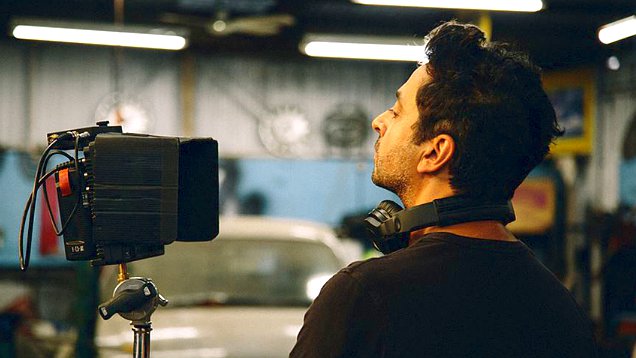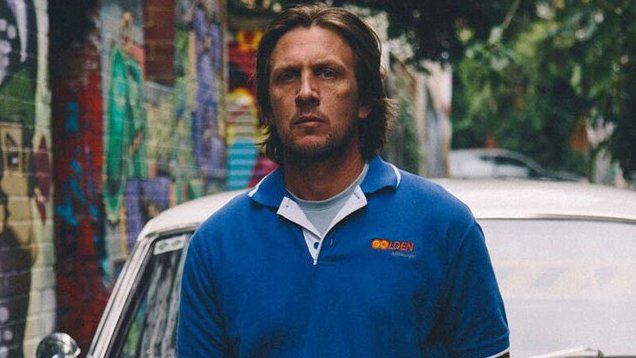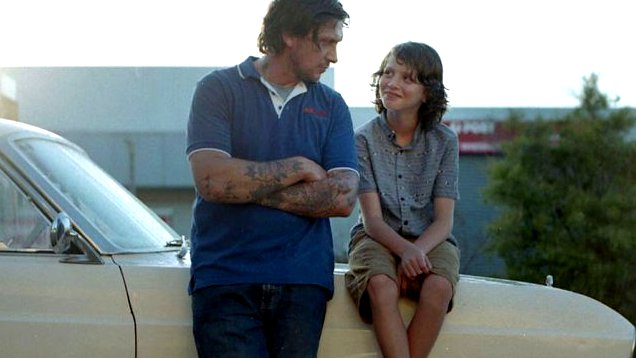Big ideas on a small budget: interview with West of Sunshine director Jason Raftopoulos

Writer/director Jason Raftopoulos has launched an impressive feature film debut with West of Sunshine, a touching ‘one day in the life of’ Australian drama about the relationship between a working-class father and his young son. We spoke to Raftopoulos about making the film, which is currently playing in cinemas.
Take us back to the start. How was West of Sunshine conceived and why did you make it?
It was really a meditation on fatherhood. Impending fatherhood. I was about to have a son. I kind of knew what was coming but I didn’t know if I was prepared emotionally or psychologically. You know that within months this human being will come into your life, so I started to think about what that meant. I started to kind of explore all the fears and the anxieties and the hope that comes with it. The seed of the film was born there – out of the milieu of this meditation about what fatherhood would be like.
West of Sunshine was programmed at last year’s Venice Film Festival. What sort of response did it receive there?
It had an amazing response. One of the best things, apart from the general audiences getting behind it, is that I was able to have a chat with a couple of the selectors. It was an interesting insight into how they felt and what they got out of it. It was just beautiful to experience. To get the cinema-loving people at Venice, who live and breathe cinema – for them to embrace the film the way they did, it was a dream come true.

West of Sunshine is a ‘day in the life’ style film. Why did you decide to structure the story this way?
One of the motives of the film – one of the themes in the subtext – is the notion of time. How we use our time, especially when it comes to our family and those that you love, is really important. How we grow spiritually. With time and either great pain or great joy, people can evolve spiritually. Being shot from sunrise to sunset, time becomes part of that motive.
When we slowed the frame rate down, it was because the characters in this moment are going through some kind of spiritual evolution. That only happens between time and pressure and pain and joy. The day becomes part of that idea. It’s in the days, the seconds, the moments we have that make profound differences in the lives of other people.
The film’s cinematography has lots of light. Was that always part of the plan?
Absolutely. It was always part of the plan to put as much light in there as possible. The city and the light. They are part of the oppression that’s building on the protagonist. When you’ve got heat on you all the time. When you’ve got buildings around you all the time. When you’ve got roads and traffic and the structures of those physical things. They add to that narrative.

A lot of films are too long but yours is tight and short: a lithe 78 minute running time. How difficult was it to get the film to that point?
It’s hard because you hang on to stuff. You hang on to stuff all the time. There’s a saying that goes: you haven’t made your film until you’ve cut out your most favourite shot. I did that. You hold onto it right until the end but it’s not necessarily serving the narrative. It’s not necessarily serving the themes. I tend to love to cut. To say: OK, that’s enough information. Move on. I want to treat my audience with respect. I like it when filmmakers let me do some work.
Here’s a great quote from a review of the film published on The Hollywood Reporter. It reads: “the town’s ubiquitous cranes and construction sites form an elegant widescreen metaphor for the film’s endlessly fraying central relationship, much in need of maintenance.” Talk us through that.
I love the metaphor of decay the renewal. The old cars were part of the old world that needed abandoning for something to come through. I love cities and I love urban renewal and decay. I am constantly walking through the backstreets of any city that I visit. I am seeking out the old, and seeing how that renews into something else. It is part of the aesthetic, really, of what I like to see. In West of Sunshine was trying to combine all these narratives together.
















